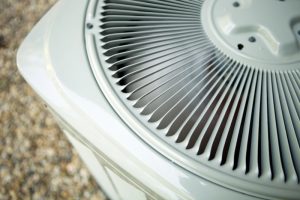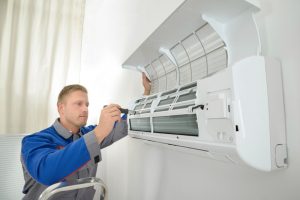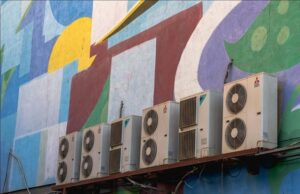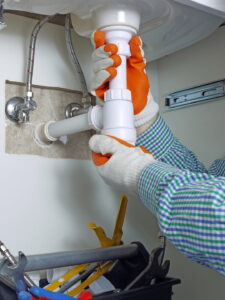 There are plenty of issues that your air conditioner will encounter throughout its lifespan. one that sticks out and its ability to throw off your home comfort is the refrigerant leak. A leak in your refrigerant line is obviously going to lead to a loss of refrigerant in your system. What some people may not realize is this is the starting point for an avalanche of trouble.
There are plenty of issues that your air conditioner will encounter throughout its lifespan. one that sticks out and its ability to throw off your home comfort is the refrigerant leak. A leak in your refrigerant line is obviously going to lead to a loss of refrigerant in your system. What some people may not realize is this is the starting point for an avalanche of trouble.
It is clear to see that a refrigerant leak is bad. But why are refrigerant leaks such a serious issue and how can you figure out that you are dealing with one? We are happy to explain.

 Heat pumps are pretty incredible systems. Imagine telling someone 30 years ago that they could get both heating and cooling from the same system. They’d likely think you were kidding!
Heat pumps are pretty incredible systems. Imagine telling someone 30 years ago that they could get both heating and cooling from the same system. They’d likely think you were kidding! The scorching heat and the humid weather have us all turning our cooling systems on. Of course, this means some people are discovering that their AC units aren’t quite up to par after being dormant all winter.
The scorching heat and the humid weather have us all turning our cooling systems on. Of course, this means some people are discovering that their AC units aren’t quite up to par after being dormant all winter. Bathrooms use a lot of water. From toilets to sinks and shower faucets, saving water in bathrooms can seem like it’s almost impossible. But with an increasing focus on conservation and making environmentally conscious choices, people are looking for ways to save water and ultimately reduce energy costs.
Bathrooms use a lot of water. From toilets to sinks and shower faucets, saving water in bathrooms can seem like it’s almost impossible. But with an increasing focus on conservation and making environmentally conscious choices, people are looking for ways to save water and ultimately reduce energy costs.  Locating and sealing off leaks in the ductwork is vital if you want to enjoy proper heating and cooling. Plus, ductwork full of leaks will result in higher utility bills and dust build-up inside your home.
Locating and sealing off leaks in the ductwork is vital if you want to enjoy proper heating and cooling. Plus, ductwork full of leaks will result in higher utility bills and dust build-up inside your home. Re-piping your whole house can be a difficult task. Apart from that, it costs a considerable sum of money. Therefore, you need to know whether you need a minor repair or the entire piping system in your home must be replaced.
Re-piping your whole house can be a difficult task. Apart from that, it costs a considerable sum of money. Therefore, you need to know whether you need a minor repair or the entire piping system in your home must be replaced. Our team of plumbing pros has served homes throughout Florida for over 45 years. In that amount of time we’ve seen our fair share of plumbing troubles that needed to have been seen to long before our plumbers got there. Why does this happen? Because many people don’t realize when they have a plumbing emergency on their hands.
Our team of plumbing pros has served homes throughout Florida for over 45 years. In that amount of time we’ve seen our fair share of plumbing troubles that needed to have been seen to long before our plumbers got there. Why does this happen? Because many people don’t realize when they have a plumbing emergency on their hands. Keeping your air conditioning system in good condition is important especially when you live around here. Temperatures and humidity can join forces to make conditions unbearable for days or even weeks at a time during the height of summer. It is in your best interest to do anything possible to help your AC do its job effectively and efficiently. One of the best ways to help your system is to schedule
Keeping your air conditioning system in good condition is important especially when you live around here. Temperatures and humidity can join forces to make conditions unbearable for days or even weeks at a time during the height of summer. It is in your best interest to do anything possible to help your AC do its job effectively and efficiently. One of the best ways to help your system is to schedule  Planning to whip up dinner for your significant other this Valentine’s Day? Or maybe you are hosting a little get-together with your friends for a Galentine’s Day. Whatever your plans are, you are hopefully excited. And the last thing you want is to have your hard work ruined by a backed-up drain!
Planning to whip up dinner for your significant other this Valentine’s Day? Or maybe you are hosting a little get-together with your friends for a Galentine’s Day. Whatever your plans are, you are hopefully excited. And the last thing you want is to have your hard work ruined by a backed-up drain!